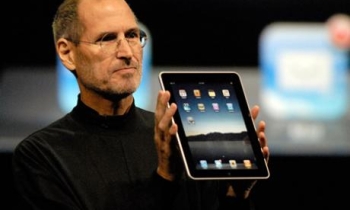MEDIA CONGLOMERATES AND smaller, traditional publishers, in a bid to counter the ascendancy of online advertising champs Yahoo (YHOO) and Google (GOOG), are snapping up online properties with abandon.
The list of recent acquisitions spools out at a giddy pace: News Corp. (NWS) shelled out $1.2 billion in July for several Internet companies including Intermix Media, the proprietor of hip social network MySpace.com; New York Times (NYT) paid $410 million in cash in February for About.com, a group of information and how-to web sites boasting more than 20 million monthly users; and Time Warner's (TWX) AOL unit plunked down a reported $25 million two weeks ago for Weblogs, a collection of special-interest web sites devoted to cars, movies and technology.
These are only the latest notes in an increasingly familiar tune for the media industry. Lines of demarcation are blurring as major players twist and turn to figure out which variation on the web-based business model will ensure continued relevance without sacrificing profitability. The dominant notion now appears to be that he who collects the most online toys wins.
"To my mind, it's starting to look like a land grab again, which is somewhat reflective of the previous bubble," says Hamilton Faber, an analyst with Atlantic Equities, an independent research firm in London. "It looks like these companies are trying to grab these unique users, and it reflects a mindset in these companies that bigger is better." (Faber doesn't own shares of any of the companies mentioned in this article; Atlantic Equities doesn't do investment banking.)
There's no question that web advertising is gaining in popularity. According to the Interactive Advertising Bureau, a trade association that tracks online ads, there was a 26% year-over-year jump in online ad spending during the second quarter. The biggest category within the $12.1 billion market is ads though search engines, which raked in $2.3 billion in the first half of 2005. The IAB predicts that 4.42% of the entire $274 billion advertising market will go to online ads, up from 3.67% last year and 2.98% in 2003. That percentage should climb to 5.84% by 2007. As online growth rates surpass growth of conventional ad spending, which is pegged at about 4.4% this year, the biggest players are trying to corral their audiences and put eyeballs in front of their advertisers.
News Corp. has certainly subscribed to the idea that if you can't build an online audience, you can buy one. Like other media companies with high cash flow rates but weak stocks – its shares are down 18.5% year to date – it's been putting its money into share buybacks and acquisitions. Although there was some friction with the Intermix purchase when founder and former Chief Executive Brad Greenspan tried vainly to fight the buyout, saying the $12-per-share offer undervalued the company, Rupert Murdoch's troops triumphed.
Along with Intermix, News Corp. acquired IGN Entertainment and Scout Media in the deal. Nielsen/NetRatings, a global media data company that tracks Internet use, said Intermix's flagship web site, MySpace.com, has 32 million users. According to AdWeek, a trade journal that covers the advertising industry, national advertisers such as Sony (SNE), McDonald's (MCD) and Procter & Gamble (PG) have signed on with MySpace.com in hopes of reaching its formidable audience. MySpace had 9.4 billion page views in August.
"This is one of the examples you have of large media organizations making significant online acquisitions to bolster their online media sales," says Thomas Forte, a media analyst at Chicago-based Morningstar. "It's looking at the business necessity of having a significant asset where you can sell that online advertising. News Corp. is trying to focus on where the largest online audiences are now." (Forte doesn't own shares of any of the media companies mentioned in this article; Morningstar doesn't do investment banking.)
At a recent analyst conference Murdoch said News Corp. would continue its expansion plans, and that search engine and voice-over-Internet capacities were high on its shopping list. News Corp. was one of the suitors in the bidding for Skype, the Belgian-based Internet phone service recently bought by online auction site eBay (EBAY) for $2.6 billion.
"All of these guys face a situation where their traditional businesses are losing share and suffering lower growth rates, and News Corp. isn't behaving much differently from other names," says Faber of Atlantic Equities.
Viacom (VIA.B) is going about its online shift a bit differently. On Friday it finalized the $49 million purchase of IFilm, an Internet video company, by its MTV Networks unit. That will help get MTV content in front of the estimated 10 million users that IFilm brings, and add momentum from its other recent purchase of Neopets, an online community site.
Faber says Viacom's strategy of internal investment in content hasn't helped its cable network revenues, which prompted him to downgrade the stock to Neutral from Overweight earlier this year. "Traditional brands haven't translated all that well onto the Internet," he said. "Overall, you need to step up to dominate the Internet space."
At Time Warner, management is once again enamored of AOL, and is in talks with Google and Comcast (CMCSA) to sell a stake in the online unit worth as much as $5 billion. The joint venture would meld AOL's 19 million subscribers with Google's search engine and Comcast's cable network to achieve the integrated media platform that could well be the industry's best trifecta.
The deal faces some obstacles, not least of which is financier Carl Icahn's public excoriation of Time Warner management. Last week, Icahn, who along with a group of hedge funds owns about 2.6% of Time Warner's shares, released a letter calling for the election of a new board of directors. It criticized the original 2001 merger with AOL as an $87 billion disaster that caused the company's market value to plummet 75% in two years.
"Recently top management has begun highlighting AOL as a valuable asset and growth opportunity – where have they been since 2000?" Icahn wrote in the letter. "To the extent that opportunities are now available to enhance value at AOL, which we believe there are, we implore management and the board to move more decisively than they have in the past."
In a climate where Big Media is scooping up smaller, targeted properties at a dizzying rate – an industry-wide voraciousness that Faber says should bolster shareholder value – Icahn might get his wish.
"I don't see [companies] slowing down," Faber says of the buying binge. "There's probably much more to come."
This year's shopping sprees represent a shift in the perception of the value of Internet properties, says Steven Bernard, director of M&A market analysis at the Milwaukee investment bank Robert W. Baird.
"The feeling with these buyers is, I think, that it's somewhat of a logical extension of their brand," Bernard says. "What they're saying, given the number of deals we've seen, is that the valuations on a lot of these Internet properties have come down to much more reasonable levels. What you've got are basically real companies and real revenues, not the clicks and eyeballs they talked about during the bubble." (Bernard doesn't own shares of any of the companies mentioned in this article; Baird doesn't have investment-banking relationships with any of them.
The pickup in online acquisitions also represents a shift in managements' views of how best to spend the substantial sums of money in their coffers.
"It's a question for each individual company about what to do with their cash – they can spend it through share buybacks, or spend it through dividends and one-time payouts, or they can spend it through acquisitions," Berbard says. "Obviously, they don't view their own stock as so cheap right now, and they have better uses for their cash than buying their own shares back."









